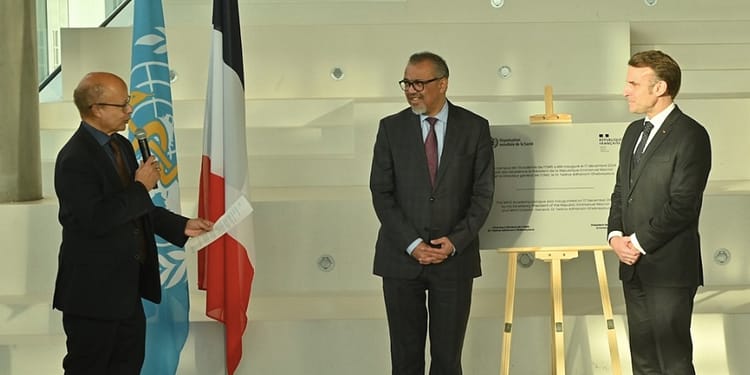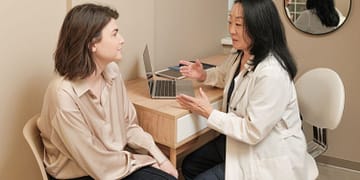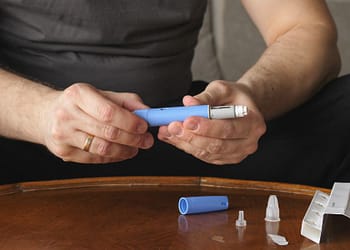- Cough, Mucus, and Respiratory Health: A Complete Guide - August 18, 2025
- Flogoprofen: what it's used for and how to take it - June 21, 2025
- What is Movicol oral solution in sachet used for and how to take it? - June 18, 2025
The World Health Organization (WHO) officially opened its Academy in Lyon, France, with a high-level ceremony with French President Emmanuel Macron, WHO Director-General Dr Tedros Adhanom Ghebreyesus and other international health leaders. The Academy promises to transform training in global public health. It will offer face-to-face and online programmes to train health workers, policy makers and WHO staff.
A response to global health challenges
The WHO inaugurates its academy due to the need to address two urgent problems, on the one hand the shortage of health personnel and on the other hand the gaps in access to medical innovations.
According to the WHO, The world will face a shortage of 10 million health workers by 2030, with a particular impact on low- and middle-income countries.To combat this situation, the Academy will provide up-to-date knowledge in public health and advanced techniques, including artificial intelligence. This initiative seeks to strengthen health systems and ensure equitable access to essential services.
Modern infrastructure and innovative technology
The Academy’s campus in Lyon is a state-of-the-art facility designed to facilitate advanced learning and features 22 training classrooms, two distance learning rooms, a simulation center and a modern auditorium. It also includes a library and a recording studio. Alongside these physical facilities, the Academy also offers an online platform that democratises access to high-quality courses. Healthcare professionals from anywhere in the world will be able to participate in these educational programmes free of charge.
President Macron stressed the pride of inaugurating an institution that combines technological innovation and health training. According to Macron, this investment is essential to prevent future pandemics and strengthen global health security.
"Better-trained health workers are essential to building a safer world," the president said.
Transforming Public Health Education
Dr Tedros stressed that the Academy will change the way WHO guidelines are applied. Until now, many technical standards have gone unused due to a lack of practical training and this new institution seeks to close that gap, providing workers with the necessary tools to implement significant improvements in health systems.
Ambitious Goals for 2028
By 2028, the Academy aims to train three million health professionals, including doctors, nurses and policy makers. It also plans to produce between 50 and 80 new courses each year, reaching a total of 260 educational programmes by the end of the decade.
A Promising Future for Global Health
The WHO Academy represents a crucial step in addressing global health challenges. With access to advanced training, thousands of professionals will be better equipped to deliver essential services and reduce health inequities.
This pioneering institution will not only train individuals, but will also strengthen healthcare systems around the world. With its inclusive and technological approach, the Academy promises to mark a new era in global healthcare training.






